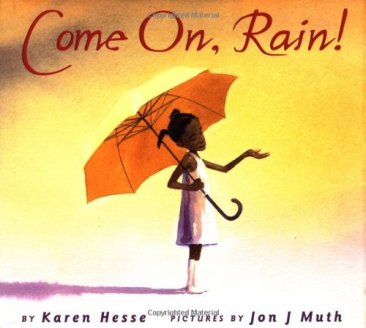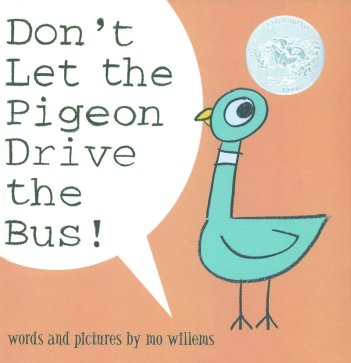
Earlier today I visited my local Barnes & Noble to purchase The Book. This book shall remain a mystery until a future post. 🙂
Anyway, I enjoyed a lovely conversation with a grandmother who is also a writer. She popped into the bookstore to purchase the gorgeously illustrated and beautifully written picture book, “Stellaluna” by Janell Cannon for her adorable granddaughter.

Picture books like “Come on Rain!” by Karen Hesse and Patricia Polacco’s “Chicken Sunday” are much longer in comparison to the picture books that are being published today. And it’s sad. I’ve drawn my own conclusions about why that might be.

There’s no doubt that editors and agents are paying close attention to  their intended audiences. Perhaps, they’ve drawn conclusions that the kids of today have shorter attention spans and that they’re unable to listen through a ten minute read aloud (and fellow teachers, let’s not forget accountable turn and talk time, amiright)? Last year, I sent a survey home to parents asking about obstacles that keep their student from reading. Parents didn’t disappoint. One parent in particular explained that her daughter is distracted by so many “toys and gadgets” such as her cell phone, tablet (where she plays app games such as Candy Crush) and video games. Despite this parental feedback, I was still confused because even as a kid when I had my video games (Legend of Zelda, Ogre Battle, Street Fighter, Mortal Kombat, Final Fantasy series — oh yes!) I made time for reading. My parents also instilled in me the importance of prioritizing.
their intended audiences. Perhaps, they’ve drawn conclusions that the kids of today have shorter attention spans and that they’re unable to listen through a ten minute read aloud (and fellow teachers, let’s not forget accountable turn and talk time, amiright)? Last year, I sent a survey home to parents asking about obstacles that keep their student from reading. Parents didn’t disappoint. One parent in particular explained that her daughter is distracted by so many “toys and gadgets” such as her cell phone, tablet (where she plays app games such as Candy Crush) and video games. Despite this parental feedback, I was still confused because even as a kid when I had my video games (Legend of Zelda, Ogre Battle, Street Fighter, Mortal Kombat, Final Fantasy series — oh yes!) I made time for reading. My parents also instilled in me the importance of prioritizing.
Another reason why I think picture books have shrunk is because they aren’t made for cheap. Publishers have to pay the illustrator and the author (if they’re not working with an author-illustrator). One other favorite picture books is “Amazing Grace” by Mary Hoffman and illustrated by Caroline Binch. Reading Rainbow introduced this book to me. I love how the character-driven story shares a universal message about following your dreams despite resistance from others.
I miss the picture books of long ago! I miss the the graceful use of figurative language! And don’t get me wrong, I understand that publishers need to make money. Otherwise, they can’t feed their own families, pay their bills, and so on. According to Kidlit.com, picture books are a $50,000 investment for a publisher!
BUT, I do think that if a book is great and interesting, the length SHOULD be an afterthought! And if a reader is really engaged then they’ll just keep reading.

However, there have been times when I’ve relied on Quick Reads for my little ones. Mo Willems’ “Don’t Let the Pigeon Drive the Bus” is a great solution when I’m cramped for time!


The costliest aspect to a picture book is the printing costs: the paper and ink, and the longer the book, the more they have to spend on that. I suspect these costs more than the royalties paid to the author and illustrator drive the trend toward shorter books. Another possibility is that picture books with grand full-spread artwork don’t lend themselves to reading on devices. While I suspect most people are still buying “real” books for kids, suitability for e-Readers might be a factor too.
What really annoys me as a parent is the dumbing down of the classics. A few years ago I wanted to buy “The Secret Garden” to read to my daughter, and I was shocked to discover a rewritten version of this classic and others where the language had been “modernized,” which means it had been turned into bland, dull prose that had zero rhythm or appeal (to me). I get it that you don’t want to discourage kids from reading because the text is too hard, but at the same time, when kids, and later, adults, can’t comprehend more complex sentence structures, I think it must impair their ability to comprehend more complex ideas. (Though admittedly I haven’t seen any studies or anything on this…I’m just guessing.)
Hello there! Thank you for your comment. I don’t think we need studies to confirm what teachers see every year. You’re spot on! This year, most of our students’ (sixth graders) reading skills are devolving. 😦 They are unable to understand the beauty of metaphors even when they’re applied to real-world scenarios (child labor). For example, students were unable to choose one correct line from Sandburg’s poem, “They Will Say” (https://www.poetryfoundation.org/poems/45042/they-will-say-56d22461a103c) that supports the idea that children’s rights were being violated. My fellow teacher and I are so saddened by this.